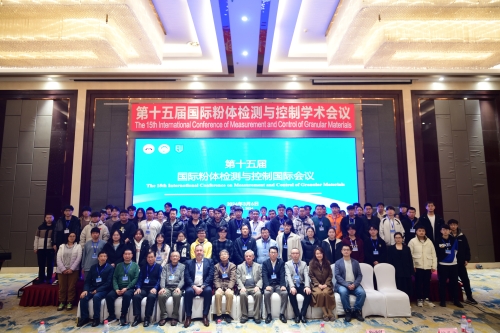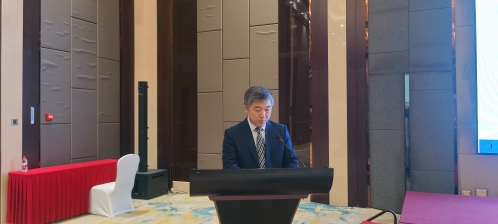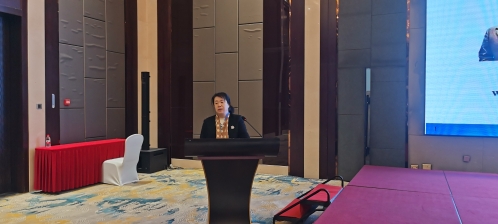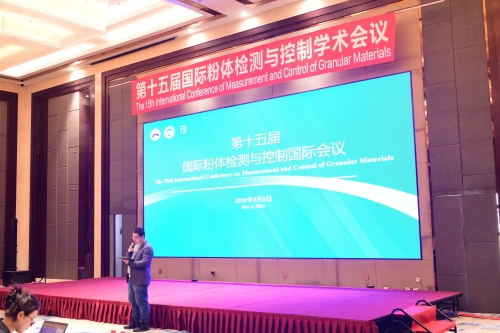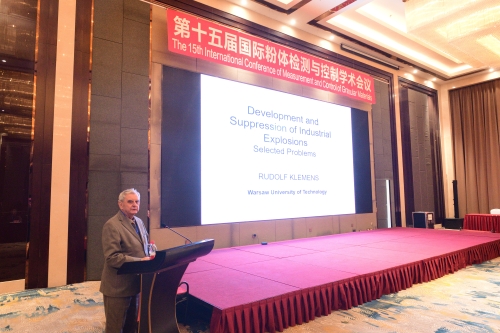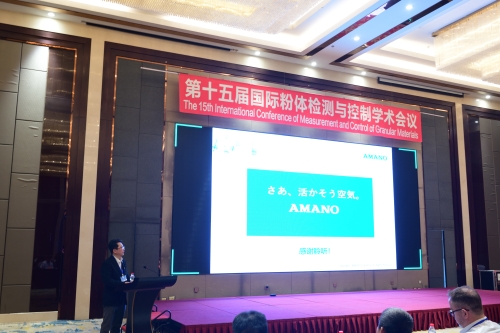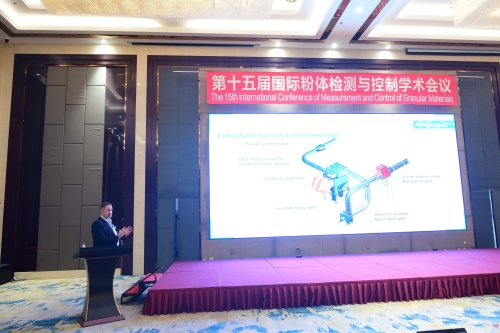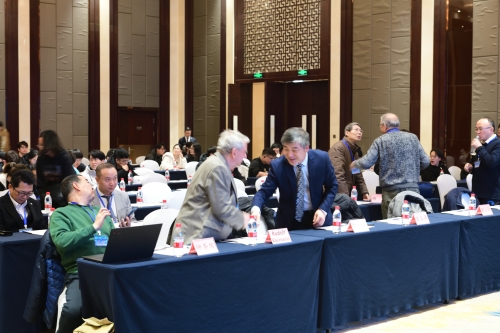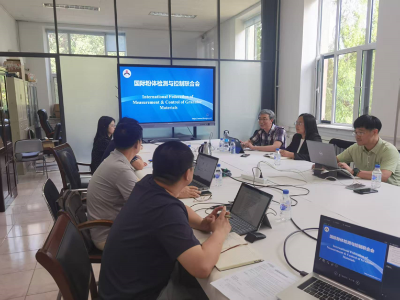On March 6, 2024, the 15th International Conference of Measurement and Control of Granular Materials was successfully held at the International Academic Exchange Center of Northeastern University in Shenyang, China. The conference was organized by the International Federation of Measurement and Control of Granular Materials (IFMCGM), hosted by Northeastern University, and co-organized by Villo-EnvSafe Environmental Protection and Safety Institute (Suzhou) Co., Ltd. Hundreds of representatives from relevant industries, along with expert teams from six countries/regions, participated both online or offline, engaging in discussions on technological innovation and sustainable development in particle/powder detection and control processes.
The opening ceremony featured speeches by Wang Yutao, the President of IFMCGM, and Li Hongru, Director of the Institute of Intelligent Technology and Applications at the School of Information Science and Engineering, Northeastern University. They extended sincere welcomes to the attendees and expressed warm congratulations on the conference. The Vice Secretary-General of IFMCGM, Jiang Guanyu, presided over the conference.
During the event, presentations were delivered by Professor Rudolf Klemens from Warsaw University of Technology in Poland, Professor Xu Renliang, an international expert in particle studies from the United States, Professor Yao Jun from China University of Petroleum, Professor Cai Xiaoshu from Shanghai University of Technology, Director Taiji Miyake from Amano Group, Mr. David McEwan, Asia-Pacific Combustible Dust Applications Manager at Nederman Group, Professor Zhang Jiliang from Northeastern University, Professor Zhang Jianyong from Teesside University in the UK, and Professor Wang Yutao from Northeastern University. Attendees attentively listened to the presentations and engaged in lively discussions with the speakers on scientific issues, interdisciplinary collaboration, and applied research.
The conference focused on cutting-edge technologies in particle/powder detection and control, broadening professional perspectives, exploring discipline construction, discovering outstanding talents, and promoting technological innovation and development in the field of powder detection and control. It made a positive contribution to the exchange of science and technology and humanities.
